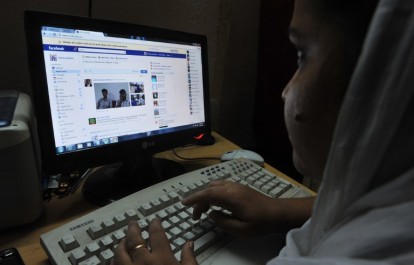Freedom of Expression
Why Digital Security matters for journalists in South Asia
27 May, 2016
The Internet is one of the last bastions of freedom – or at least, it was, until most governments discovered it.
States have traditionally been inclined to censor the press, regulate TV and radio; they have suppressed publication of books and newspapers and controlled their borders. Wherever conditions hostile to journalism have crept in, authoritarianism has thrived.
Today, however, governments and institutions worldwide are confronted by a force that knows no borders and has always been open to everyone: namely, the Internet.
Citizen journalism has taken off; today anybody armed with a keyboard or camera can self-publish and report stories in public interest. Journalists are no longer dependent on any central organization to reach a massive audience.
Thanks to social media, injustice against one street vendor in one town could inflame an entire region and topple long-entrenched authoritarian regimes in several countries.
Digital tools have enabled whistleblowers to shine a light on massive spying on citizens by their own governments on an unprecedented scale.
This free flow of information has empowered journalists and threatened entrenched powers.
Perhaps in response, journalists and whistleblowers now face renewed threats from both state and non-state actors.
In the face of these threats, it is important for journalists to protect the safe digital space that is so vital to carry out their jobs – pursuing leads, engaging in investigative journalism, and protecting the confidentiality of their sources.
A recent survey by the IFJ and the South Asia Media Solidarity Network (SAMSN) suggests that, in general, journalists do not use digital tools in a secure manner.
For instance, all mainstream social media and email providers (like Twitter, Facebook, Gmail, etc.) now have easy-to-setup two factor authentication that makes it much harder for one’s data to be compromised. Yet, a fourth of all journalists surveyed did not know, or did not use, two factor authentication.
Email and text messaging are commonly used by journalists. Yet, SMS is an inherently insecure mode of communication. Over half the journalists surveyed in South Asia responded that they have never changed the default password on their organizational email.
Most respondents also had never used encryption. The use of public key encryption like PGP makes email highly secure, but it traditionally took a lot of effort.
Today, there are much simpler software solutions that enable end-to-end encryption by default with almost zero effort. Free and open source tools like ProtonMail and Signal messenger are good examples of these.
With end-to-end encryption, only the sender and receiver are able to read the messages – and it is close to impossible for any third party to intercept the message unless they had physical access to the device.
Speaking of devices, the survey also found that a surprising number of journalists did not properly secure their smart phones that contain sensitive information; 1 in 3 journalists in Nepal and Pakistan responded that they did not use any PIN or password on their phone.
Passwords should also be unique across different websites. Password managers like Keepass and LastPass are available that help create and manage multiple secure passwords.
An overwhelming nine out ten South Asian journalists surveyed expressed a desire for more training and orientation on digital security.
There is room for press organizations and CSO’s to cater to this demand and train journalists in digital security best practices, and familiarize them with the easily available, open and free tools.
Digital security is crucial to safeguard both the public’s right to information, and the journalists duty to inform.
The author, Yameen Rasheed, is a freelance writer and political commentator based in Malé, Maldives. He blogs at www.thedailypanic.com and tweets at @yaamyn.
Photo: Noah Seelam / AFP
Written By
Comments
Resources
- IFJ South Asia Media Bulletin, February 2023 02/15/2023 Download
- IFJ South Asia Media Bulletin, January 2023 01/18/2023 Download
- Nepal Press Freedom report 2022 01/03/2023 Download

